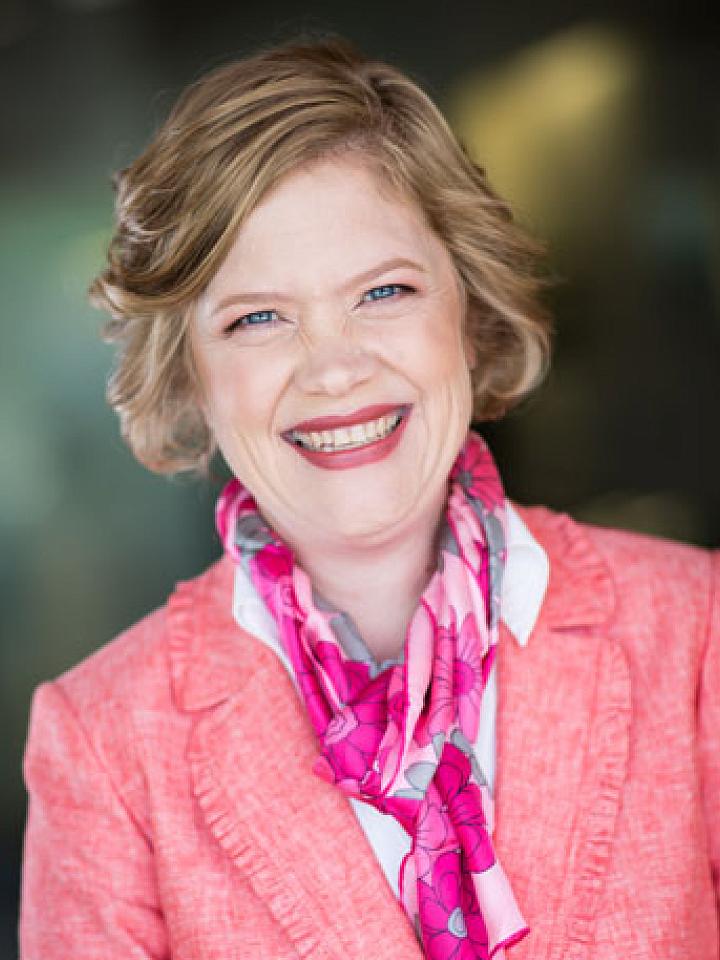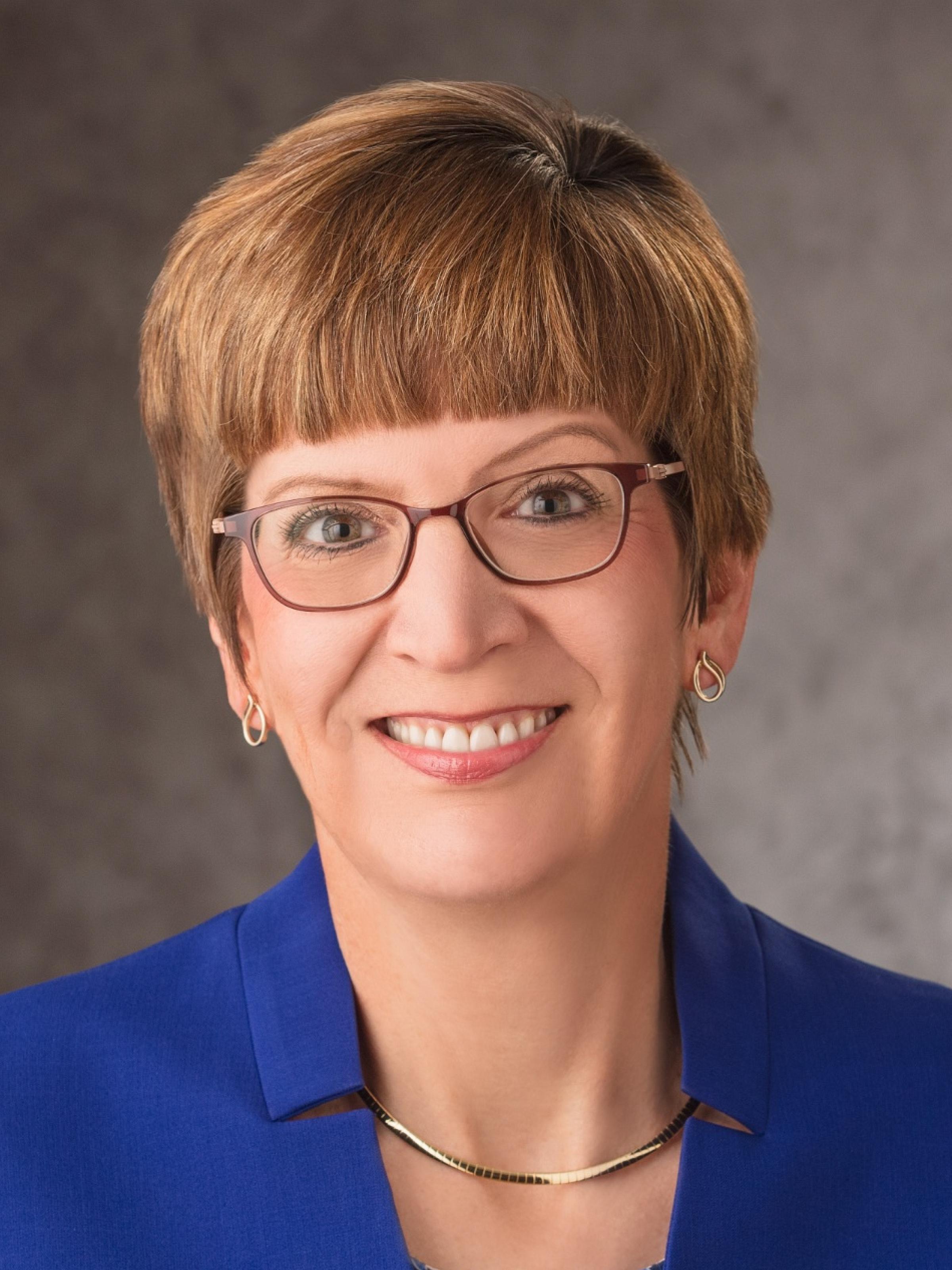
Every March, Women’s History Month is celebrated in the U.S. and around the world. This year, Women in Health, Medicine, and Science (WiHMS) will be running a series throughout the month that highlights women in leadership positions across the health sciences campus.
For this Women in Leadership feature for Women’s History Month 2024, we recognize the work, achievements, and leadership of Dr. Angela Fagerlin and Dr. Marla J. De Jong.
Angela Fagerlin, Ph.D.
Associate Vice President for Faculty, University of Utah Health
Professor and Chair, Department of Population Health Sciences

What or who inspired you to pursue a career in health sciences?
As a graduate student, I had the opportunity to conduct my research on the use of advance directives at the end of life. As much of my experimental psychology training was more basic science and less applicable to daily life, I was inspired by taking psychological principles and applying them in a way that could improve health and quality of life. My master’s and dissertation projects both focused on end-of-life decision making and I was fortunate to have my first academic job in a school of medicine. To be honest, I never imagined I would spend my entire career in a school of medicine, but I am thrilled I have. I feel very lucky to conduct my research with incredible clinical colleagues and to impact patient care in my own way.
What are the highlights of being a woman leader in health sciences?
I think I see some things differently than my male colleagues because of my life experiences and because of the stories I hear from my women colleagues. These experiences led me to be able to make some meaningful changes that I hope have helped our faculty achieve success and well-being.
What are the challenges of being a leader in health sciences?
There are so many competing priorities for our faculty and our leaders. Many of our faculty (and staff and trainees) are struggling with balancing all our missions (clinical, research, and teaching) while also balancing work with their life at home. I think a key challenge as a leader is finding the best way to support our people in a way that they can achieve their professional and personal goals.
Please share with us the best piece of advice you have ever received.
When I was trying to decide whether to accept the job to become the inaugural chair of Population Health Sciences, I was talking to a senior (male) colleague about my concern of being able to do this role while also being a present and good mom of my three young sons (at the time they were three, six, and nine years old). He said, you don’t have to do the job the way men have done it for years, but you need to find your own way that accomplishes the same goal, but in a way that works for you. That advice helped me see a path and has guided me in my decisions throughout the past eight years.
I also try to live by a Ruth Bader Ginsburg quote: “Help me also have the courage to fight for the things that I care about, but to do it in a way that will lead others to join me.”
Marla J. De Jong, Ph.D., RN, CCNS, FAAN
Dean, Louis H. Peery Presidential Endowed Chair, and Professor in the College of Nursing
Chair, Fellow Selection Committee for the American Academy of Nursing
Member, Editorial Board for “Military Medicine”
Chair, University of Utah Center on Aging Board

What or who inspired you to pursue a career in health sciences?
From a young age, I knew I wanted to be a nurse. It was a calling to a purpose bigger than me. I wanted to care for people, meet patients’ needs, and promote well-being. Working as a certified nursing assistant in a long-term care setting during high school confirmed that nursing was for me. Growing up in rural Iowa and before the days of the internet and smartphones, access to information about career planning was limited. My tiny high school didn’t have a guidance counselor, so I’m grateful that a friend informed me that the educational preparation of nurses was moving away from associate and diploma programs to baccalaureate degree programs. During my baccalaureate education, I learned the science of nursing and began to understand the tremendous opportunities for nurses.
Through a chance and life-changing meeting with an Air Force recruiter, I learned about military nursing, which offered opportunities to lead, advance my education, and serve in diverse locations. I knew that was where I belonged. Given that I sought a professional nursing career rather than a job, I accepted a commission into the US Air Force. I was not disappointed!
Throughout my nearly 29 years of service, I had progressive clinical, research, academic, administrative, and leadership experience in disparate settings, with wide-ranging missions, and with diverse bosses, colleagues, and subordinates--so many wonderful experiences. I became a leader in military and civilian nursing with broad reach and impact. I earned master’s and Ph.D. degrees that opened numerous doors to career opportunities. The military has its own culture, language, standards, traditions, and way of life that, without a doubt, shaped me professionally and personally. When I retired from the military, I sought an academic leadership position and accepted an offer from the College of Nursing as chair of the Acute and Chronic Care Division.
What are the highlights of being a woman leader in health sciences?
- Leading a college that is helping to transform health systems and achieve health equity at a major University and Academic Health Center with students, staff, and faculty who are shaping the future of healthcare by driving innovation, testing new models of care, making scientific discoveries, and delivering high-quality patient/family/community care.
- Empowering faculty and staff to launch and lead initiatives such as the U being designated an Age-Friendly University.
- Working with incredible students, scientists, scholars, clinicians, educators, and staff who embody the promise of our mission and vision and getting to celebrate their successes.
- Mentoring faculty and staff. It’s a joy to motivate others towards excellence, nominate faculty and staff for awards and recognition, and recommend faculty and staff for promotion.
- Embracing integrity, transparency, and excellence as core values, and leading by being my authentic self.
- Advocating for the nursing and gerontology professions – for example, educational preparation, scope of practice, research funding, fair compensation, health policy, etc.
- Collaborating with other deans and university leaders to address mutual goals, including offering diverse programs of study, advancing knowledge in all disciplines, making scientific discoveries, fostering advancements, and informing policy that improves the lives of all people.
Please share with us the best piece of advice you have ever received.
“Bloom where you are planted.” A senior military leader shared this advice with a group of second lieutenants, including me. I adopted the advice, enthusiastically saying “yes” to opportunities, continually learning, finding joy and personal satisfaction in diverse leadership roles over the years, persevering despite challenges, and performing to the best of my ability in all circumstances.